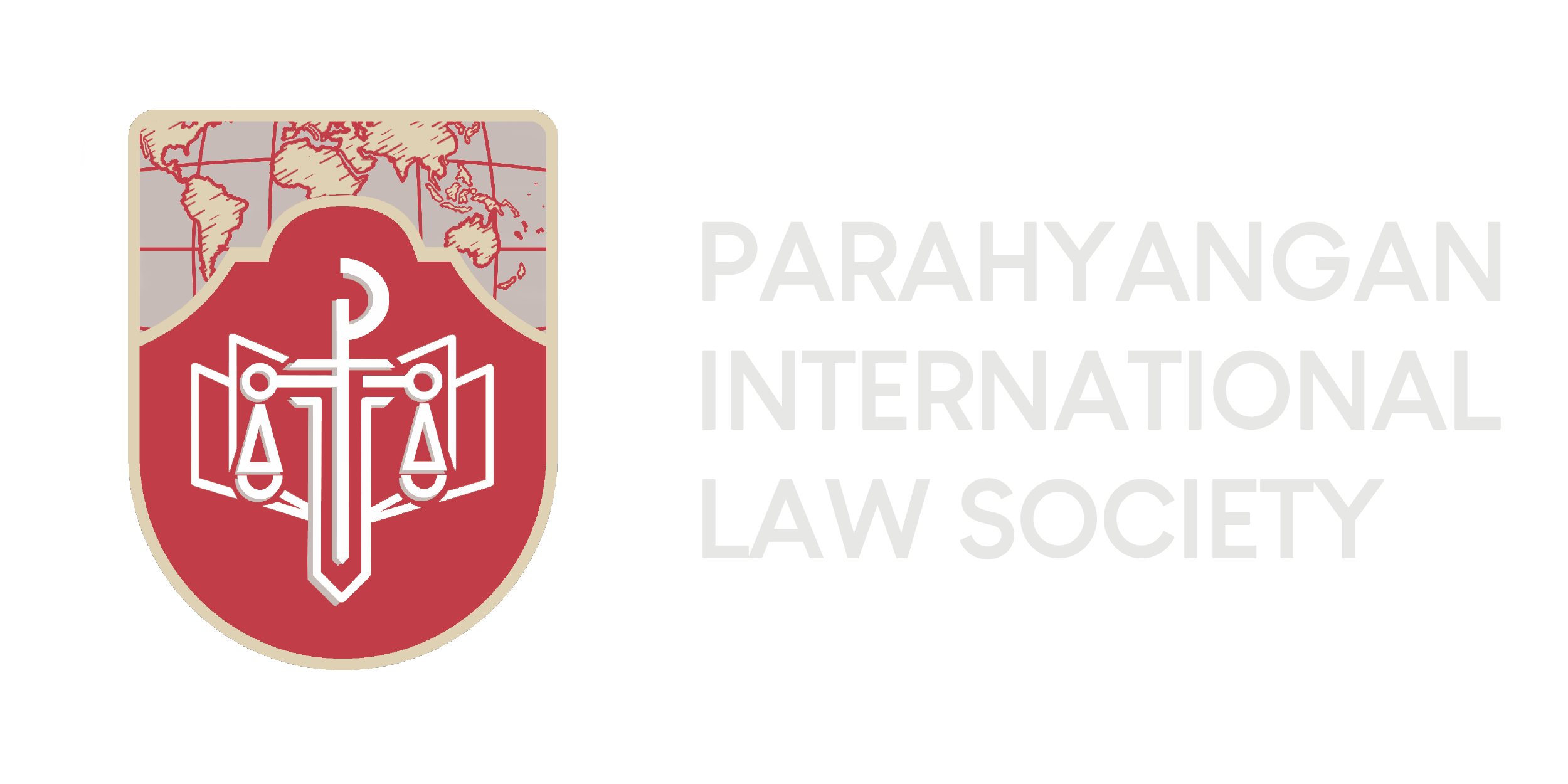Written by Nadya Theresia

Following Russia’s invasion into Ukraine on 24 February 2022 and 39 States’ petition to the ICC to open an investigation into the situation, ICC Prosecutor Karim Khan QC initiated an investigation on the situation in Ukraine. The investigation opened after the ICC’s preliminary examinations have confirmed reasonable basis to open an investigation.
As this issue unravels, PILS collaborated with the Indonesian Society of International Law to discuss this issue through Instagram Live on 18 March 2022, titled ‘Sengketa Ukraina-Rusia Masuk Pengadilan Internasional – What’s Next? (Edisi #2: ICC), inviting legal scholar and Unpar Law lecturer Adrianus Vito Ramon, S.H., LL.M. (Adv) and Counsellor Political to the Indonesian Embassy in France, Ignatius Puguh Priambodo, S.H., M.H.
Angelica Audrey, delegate of the UNPAR Team in the 2022 International Criminal Court Moot Court Competition, and Axel Cross representative from the Indonesian Society of International Law, was present as moderators and introduced the speakers. The introduction was followed by Mr. Ramon’s explanation of the background to the Russia-Ukraine issue. He elaborated that neither Russia nor Ukraine is party to the ICC’s founding treaty, the Rome Statute. As a result, Ukraine cannot refer the conflict themself to the office of the ICC Prosecutor. But this does not mean that the ICC does not have jurisdiction over the issue. In fact, Ukraine has accepted the ICC’s jurisdiction by way of a declaration dated 8 September 2015, granting the ICC jurisdiction over crimes against humanity and war crimes committed by “officials of Russia and leaders of terrorist organisations Donetsk People’s Republic and and Luhansk People’s Republic” inside Ukraine’s territory from 20 February 2014 indefinitely. These declarations were made pursuant to Article 12(3) of the Rome Statute.
Mr. Ramon proceeded to explain that the special characteristic of the ICC itself is the Court’s collecting of evidence from civil society such as non-governmental organisations and victims of the alleged crimes. Both Mr. Ramon and Mr. Priambodo agreed that establishing an estimated timeline of investigation and proceedings would be impossible, since ICC investigations alone can take up to decades-long.
Post-investigation, the next step in the ICC would be the pre-trial chamber, in which the Prosecutor must prove that they have reasonable grounds to believe that an individual did commit a war crime or a crime against humanity to proceed to the trial chamber. Mr. Ramon further explained that the standard of proof in trial is higher than pre-trial: prosecutors must prove beyond a reasonable doubt that the alleged individual conducted such crimes.
Mr. Priambodo then elaborated that individuals who are likely to be prosecuted are not only military personnels, but rather decision-makers in the State government. He continued that even if Russian President Vladimir Putin is formally accused and the ICC issues a warrant for his arrest, the ICC as a criminal court cannot hold in-absentia proceedings. In fact, Article 63 of the Rome Statute expressly states that “the accused shall be present during the trial.”
Arguably, this is the vice and virtue of the criminal judicial system, including the ICC. On the one hand, general principles in international criminal law and the ICC Statute itself indeed prohibit absentia proceedings. On the other hand, in the context of the Russia-Ukraine situation, Russia will not hand over Vladimir Putin to the ICC especially if he stays in power. This would possibly entail a very long time before the case is tried in the ICC. For example, in the Al-Bashir Case, Sudan stated that they were ready to hand over Omar Al-Bashir to the ICC only after a coup in Sudan ousted him from the presidency, despite the ICC’s arrest warrant for him since 2009.

Mr. Priambodo continued that politics and international law cannot be separated, yet this does not have to be seen as a flaw but rather must be accepted as how international law works. States’ sanctions worldwide act as peer-pressure for Russia to stop its invasion in Ukraine. Arguably, these measures are sanctioned precisely because States are sure that Russia is in violation of international law, while simultaneously respecting Russia’s sovereignty as an independent State.
Mr. Ramon and Mr. Priambodo proceeded to agree that the ICC’s role is never to solve a conflict between States. Regardless of the ICC proceedings’ outcome, the mere act of issuing an arrest warrant against Putin or any other individuals responsible for war crimes or crimes against humanity in the Ukraine will become a deterrent for other parties from doing the same and contributes to the upholding of international law in itself.
Watch our IG Live here.
